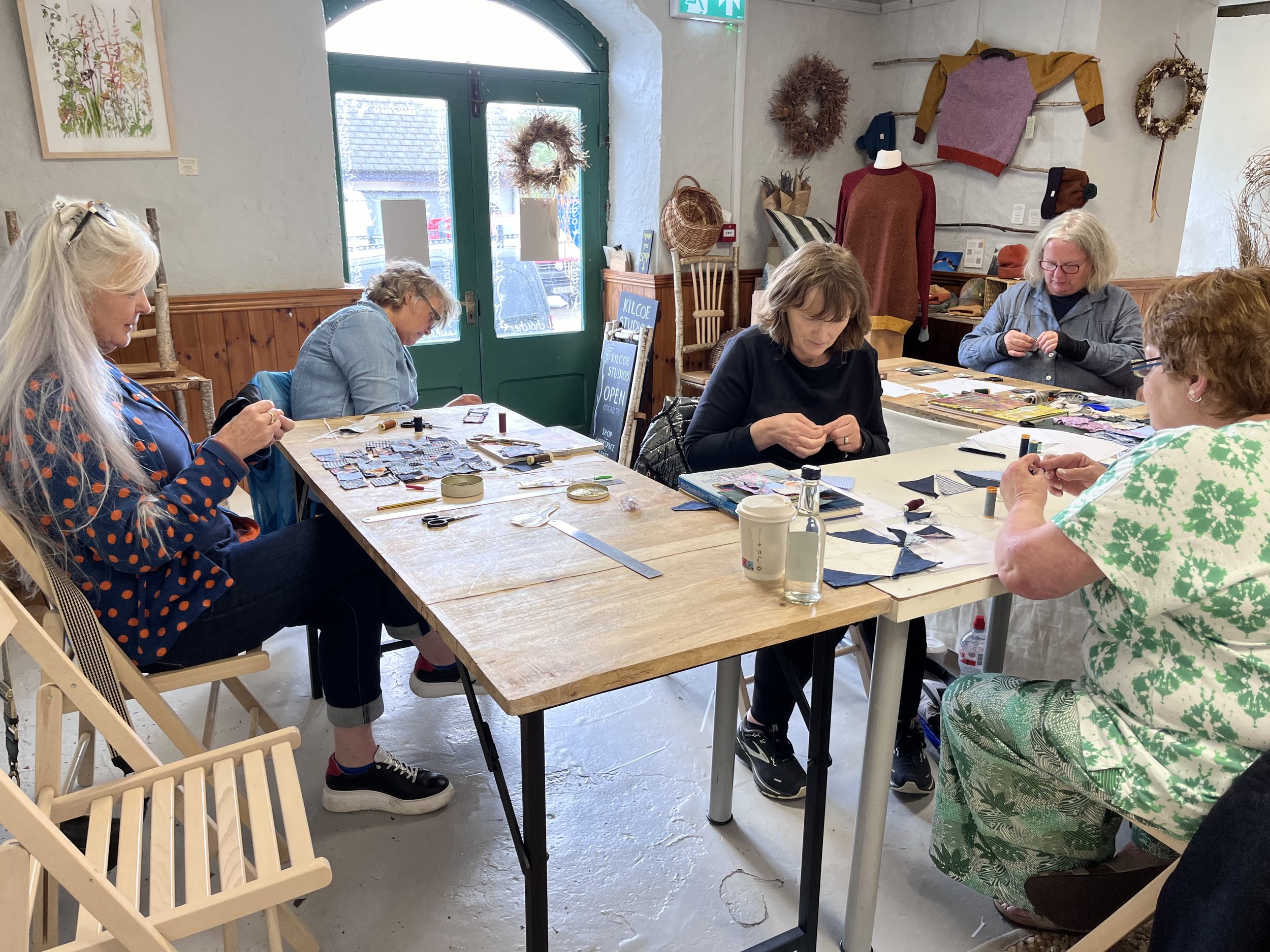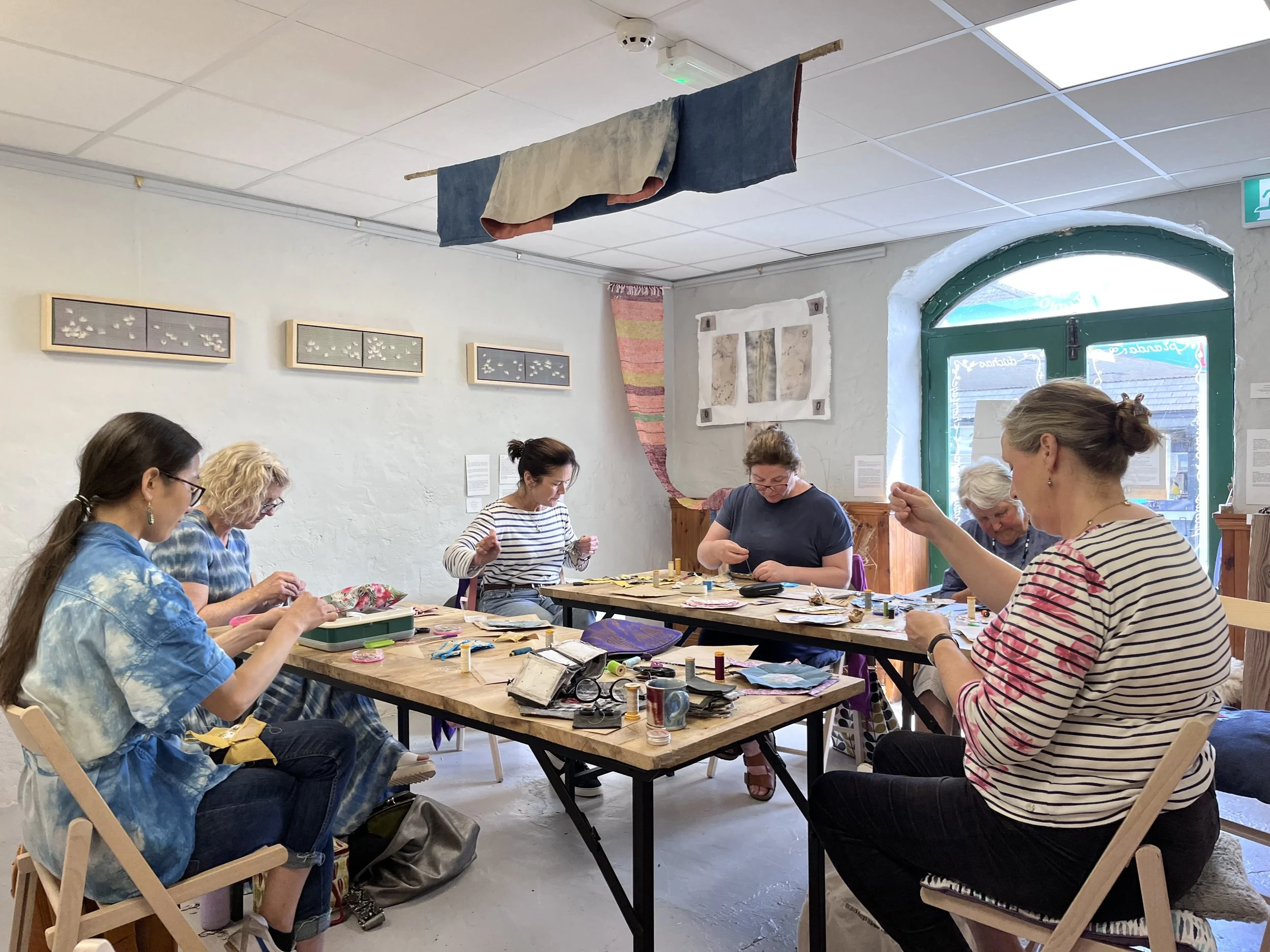In the March edition of The Gloss (the monthly fashion magazine of the Irish Times), 100+ stylish women shared their brand preferences. Eva Power, owner of The Ethical Silk Company, listed labels with sustainable credentials, but if you weren't already familiar with Reformation, Everlane and People Tree, there was no clue that these brands were ethical. Does it matter? It wasn't a piece on Sustainability, so there was no reason to expect ethical preferences to be highlighted, but I was kind of hoping for more ethical brands to be featured. Trawling through the entire magazine, there was no mention of the impact of fashion consumption or the growing movement of ethical options. I guess, being so immersed in the issues myself there's an expectation that it's more mainstream than it is and The Gloss was a reminder that there's a long way to go in raising awareness. We know not to use plastic bags and to challenge
unnecessary food packaging. Currently under the spotlight are single use items like drinking straws and take-out coffee cups and we know what to do about them – say no to straws and have a Keep Cup with us when we're out and about. So why is the conversation regarding fashion so quiet?
Perhaps, The Gloss is not representative of the attitude of the country at large, after all, it's existence is predicated on the advertising of stores like Brown Thomas and Arnotts and there's not a strong ethical message coming from such companies – yet. If an absence of ethical fashion issues in The Gloss is a true reflection of the level of unconcern or unawareness nationwide, then it's clear, there's a good way to go in getting the information out there for people to start making informed choices, or at least raise awareness that the choices we make as consumers are a reflection of our values, ethical or not.
During my perusal of The Gloss I found a tiny mention of Wicklow designer Colette Ashe whose cashmere pieces are made 'with particular emphasis on sustainability'. Also, the design duo behind Tissue, are 'passionate about sustainability'. That was something.
I was also looking out for mentions of Irish designers and artisan makers in general and gratifyingly, there were a few – not many, but a few. Domino Whisker, makes exquisite hand embroidery, two knitwear designers; Agne Nazebetauskaite in Magherafelt and Paula Marron's label Castanea and a traditional Irish embroiderer, Jill De Burca. Obviously, this is my area of special interest, because I love to find out the stories behind these makers.
It's important on many levels, not least to promote and nurture what is actually going on creatively and economically in Ireland, but because it continues the tradition of making, often by hand, and it is this that adds to the texture of our culture. I was exasperated to read Breege O'Donoghue, declare that she's 'proud to wear Penneys clothing' because she 'champions' Irish design. That's simply misleading. She can wear Penneys clothing if she wants, but opting for runway knock offs made in developing countries is hardly championing Irish design.
We can't carry on consuming the way we have, because it isn't sustainable and it's puzzling that there is still so little conversation about this in the world of fashion. It's as if we don't think it's a bad as it is. Christopher Raeburn, (he guests in this months recommended podcast), whose fashion business is based on the three R's of Remade, Reduced and Recycled, talks about how otherwise 'clever people' ask him 'how long the sustainability trend will last?'. The thing is, it's not and can't be a trend and the sooner it becomes mainstream, the better.
Tamsin ✂️















